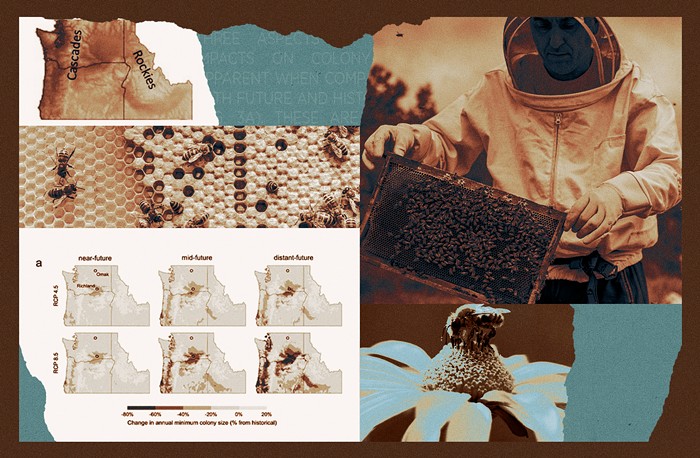
Sociobiology is the study of the sociality of social animals. It began in 1976 with a book, Sociobiology: The New Synthesis, by the famous myrmecologist E.O. Wilson. He devoted the last chapter of his important work to human sociality. This, however, was controversial because Wilson was not writing in a vacuum. His society was racist (and as a consequence, almost all professors were white males), so the fear was that if we studied humans as animals, then we would begin classifying things like poverty, and its racial aspect, as natural. An ant colony has workers and humans have workers, the sociobiologist might (and did) argue. And in this line of thinking this has nothing to do with the unfair distribution of wealth, with greed, with exploitation. It's about your nature, your body, your color, your genes.
The racists used sociobiology to justify a social order that put blacks at the bottom and whites at the top. And as sociobiology became evolutionary psychology in the 1980s, women were more and more caught in its net. Their bodies and genes were, like peahens, looking for a mate that would best move their genetic materials into the future.
Even today, sociobiology is used to support the racist economic distribution of wealth and educational opportunities. The state of things is not about race, sociobiologists say; it's about the nature of the animal. This was indeed the criticism that a white supremacist professor applied in his review of a new book in a leading academic journal, American Historical Review. The critiqued book is Making the Unequal Metropolis, and the critic is Raymond Wolters, professor emeritus of history at the University of Delaware.
Wolters is a known white supremacist. And no one knows why a respectable journal like American Historical Review picked him to review a serious work of scholarship about inequality and race. The review argued that the findings of the author, Ansley T. Erickson, were not meaningful without being seen through the lens of sociobiology. Meaning, that the current racial order had nothing to do with the unfair distribution of wealth, with greed, with capitalist exploitation. It was natural.
American Historical Review has rightly received a lot of heat for picking a racist to review a book that closely examines one aspect of a larger system that supports, and has supported, the oppression of a group of Americans whose African ancestors where brought to this continent as slaves. But the thing is this: There is no real reason why a sociobiological program needs to support white supremacist fantasies. Indeed, such sociobology can be seen and identified as not really sociobology, because this line of thinking can't really explain why a hyper-social and hyper-egalitarian animal has organizational forms that contain large and oppressed racial and class groups. The bankrupt sociobiobolgy of a Wolters, or that of many an evolutionary psychologist, looks at human history over the past 200 years and says what it sees represents a human history of 250,000 years.
I'm a socialist. I'm also into sociobiology. And my long-form work in eflux, such as Black Mirror Body, has, with guidance from the feminist sociobiologist Sarah Hrdy, come to conclusions about human sociality that, with good reason, completely contradict those of a Wolters. Human sociality, in this view of things, is not the product of competition and exploitation, but an obsessive commitment to an egalitarian ethic, which only says one thing: make me the same as you. The world Wolters and his ilk attempt to attach to human sociality would actually better explain the very limited sociality of a gorilla.
My point is that sociobiology is important, because if used honestly, with a mind that's as open as possible, it explains a lot by beginning with the important and obvious fact that the human is an animal—a social animal.















